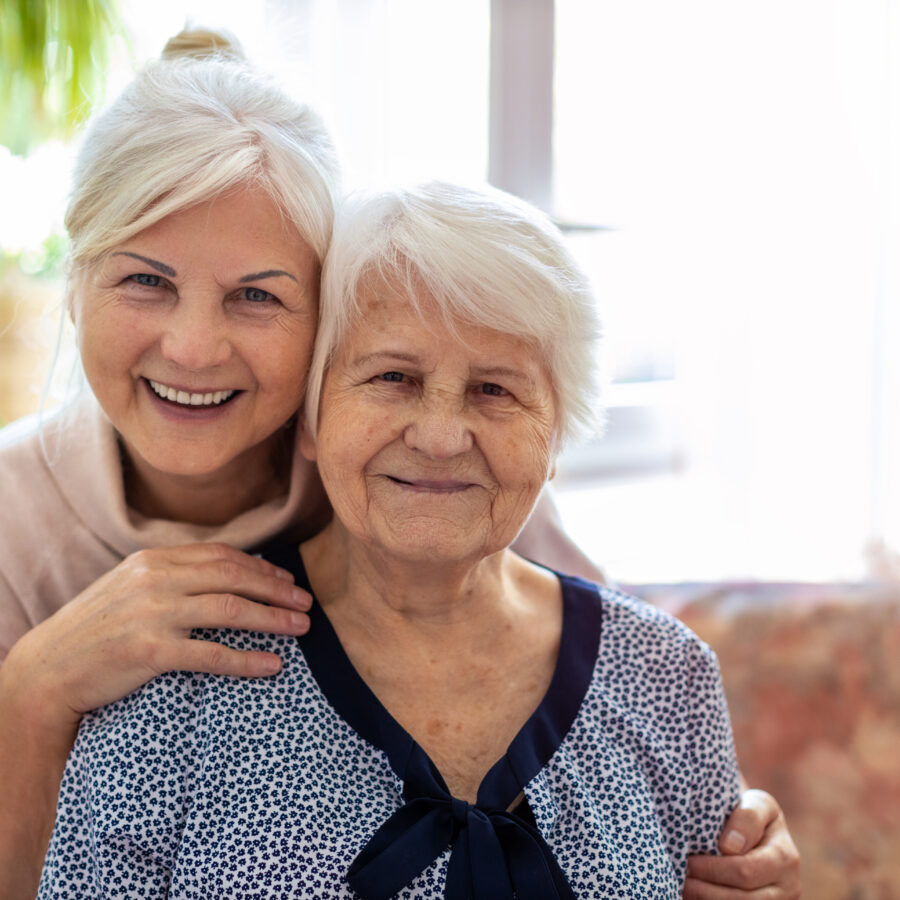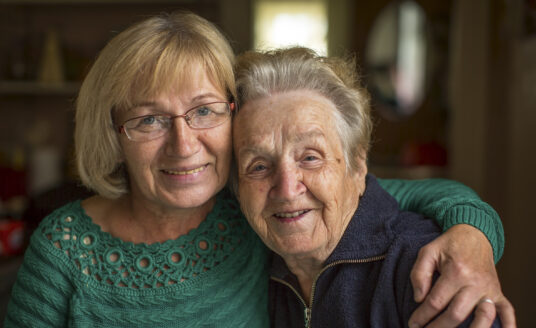When our senior loved one needs our assistance, it’s natural to want to do everything we can to help. But who is going to take care of them if something happens to you?
Devoted family members often burn the candle at both ends — working a full-time job, taking care of their kids and keeping their other responsibilities in order – while still trying to be everything for their Mom or Dad. This leaves them with little time to take a breath or collect their thoughts.
While it’s important to help others, it’s equally as important to set aside time to take care of ourselves. Caregivers often don’t get enough rest, don’t make time to exercise or eat properly, put off their own medical appointments, and don’t take time off when they’re sick. That is not a good combination.
Practicing Self-Care for Caregivers
Here are eight ways we can keep ourselves healthy and refreshed so we can continue to be the person our loved ones depend upon:
- Recognize the signs of burnout. Do you feel exhausted both physically and emotionally, like you have nothing left to give? Do you have so many things to do that you don’t know where to start, and feel unmotivated to even try? These are classic signs of burnout and should indicate to you that you need to slow down and take a break.
- Allocate time to take care of yourself. It may feel strange to put yourself first when there is so much you need to do. But it’s not! Imagine if you went to the hospital because you were in an accident and the surgeon was exhausted because he was up all night treating other patients. Because the surgeon wasn’t relaxing and recharging, he’s probably not going to be at his best when you need him the most. Taking some down time will not only prevent you from becoming burned out, but it will also make you more patient, cheerful, and present when you’re back helping your senior loved one. Although pangs of guilt can sometimes appear where they don’t rightfully belong, prioritizing the caregiver’s wellbeing is the best thing for everyone involved.
- Work out a plan with your family and your employer. How do you manage when you’re trying to juggle a bunch of responsibilities? Step one is to come up with a plan. Let your boss know your senior loved one has physical therapy on Tuesdays and Thursdays at 4 p.m., so you must leave work early those days. Ask your siblings to help out with some of the duties, or encourage your loved ones to set appointments at a time when you’re not busy with other responsibilities. A little bit of planning can go a long way in balancing your schedule.
- Learn to manage your stress. You have added a big responsibility to your weekly agenda. You can counter the effects by actively seeking out stress relievers to keep everything in balance. Regular exercise, meditation, making time for a hobby or seeking professional counseling are all recommended ways of keeping your stress at a manageable level and maintaining a positive attitude.
- Seek resources for assistance. You may feel like you’re on your own. But there are lots of resources available to people taking care of senior loved ones. The St. Louis Care Alliance offers contact information for a large array of senior services from adult daycare to in-home medical services and moving assistance. Bethesda offers respite care, allowing family members the time they need to recharge their batteries.
- Communication is Key. Just like with any other relationship, understanding each other is vital in making things run. Although you may find yourself frustrated by the circumstances, remember to keep your language positive and helpful by avoiding loaded phrases that seem to blame Mom or Dad for things they can’t control. The same goes for dealing with family members. Avoid arguments even if you feel like others aren’t doing their share, because the higher the tension level, the less likely they’re going to pitch in at all.
- Be in touch with your emotions. Watching a loved one lose their ability to take care of themselves can cause feelings of loss and confusion. Don’t bottle up your feelings and make things worse for yourself. Talk to someone — your significant other, a friend or a professional — to be sure your emotional needs are met.
- Realize you can handle this and you’re not alone. According to the Family Caregiver Alliance, more than 1 in 6 Americans working full-time or part-time report assisting with the care of an elderly or disabled family member, relative, or friend. And 40%-70% of caregivers have experienced depression and signs of caregiver burnout. So, take comfort in knowing that people understand what you’re going through and they’re there to help you. You can do this if you remember to prioritize your own health and needs, too.
The Bottom Line
While taking care of a senior loved one is a lot of work, this is a once-in-a-lifetime chance to spend time with Mom and Dad that you’ll never get back. Make the most out of it by eliminating the pitfalls of caregiver burnout and keeping things as happy and productive as possible. It may be tough right now, but you’ll be glad you were able to give something back to a loved one for the rest of your life.
Back to All Posts


